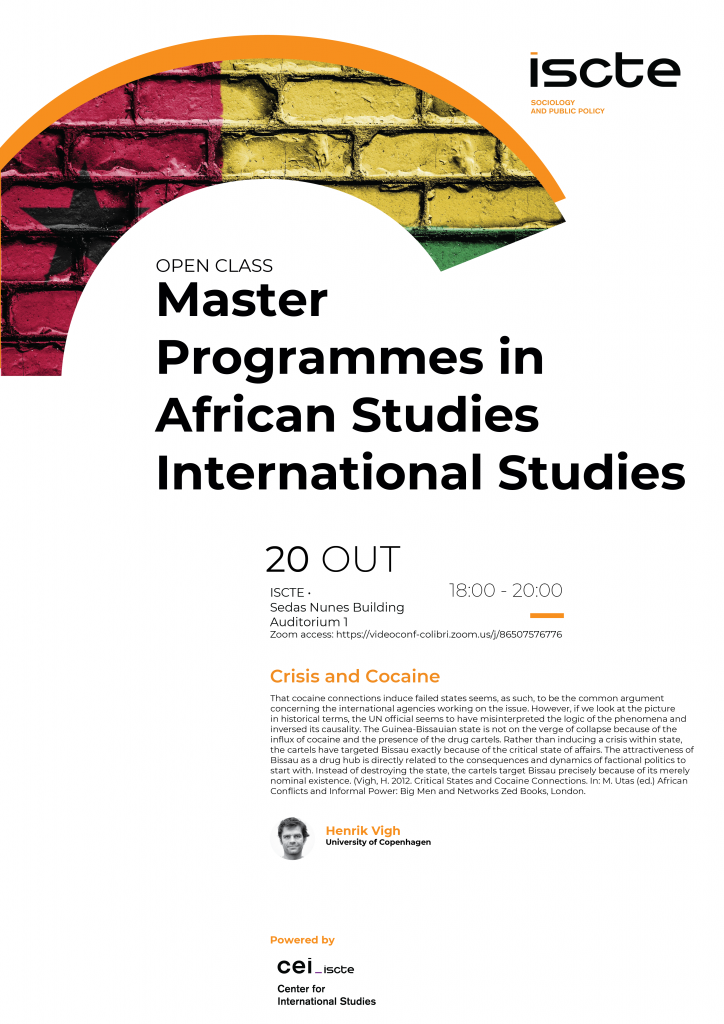Henrik Vigh (PhD Anthropology, Un. Copenhagen) is a professor at the University of Copenhagen and a well-known researcher on the subjects of youth, social navigation, global crime and drug circulation between West Africa and Europe. His main publication was Navigating Terrains of War: youth and soldiering in Guinea-Bissau (2006) Oxford/New York: Berghahn. He is the coordinator of the ERC project “Criminal Entanglement” looking the social infrastructure of international crime.
That cocaine connections induce failed states seems, as such, to be the common argument concerning the international agencies working on the issue. However, if we look at the picture in historical terms, the UN official seems to have misinterpreted the logic of the phenomena and inversed its causality. The Guinea-Bissauian state is not on the verge of collapse because of the influx of cocaine and the presence of the drug cartels. Rather than inducing a crisis within state, the cartels have targeted Bissau exactly because of the critical state of affairs. The attractiveness of Bissau as a drug hub is directly related to the consequences and dynamics of factional politics to start with. Instead of destroying the state, the cartels target Bissau precisely because of its merely nominal existence. (Vigh, H. 2012. Critical States and Cocaine Connections. In: M. Utas (ed.) African Conflicts and Informal Power: Big Men and Networks Zed Books, London.
Organisers:
CEI-Iscte
Master in International Studies
Master in African Studies
Auditório 1, Ed. Sedas Nunes, Iscte – Instituto Universitário de Lisboa
Zoom: https://videoconf-colibri.zoom.us/j/86507576776
